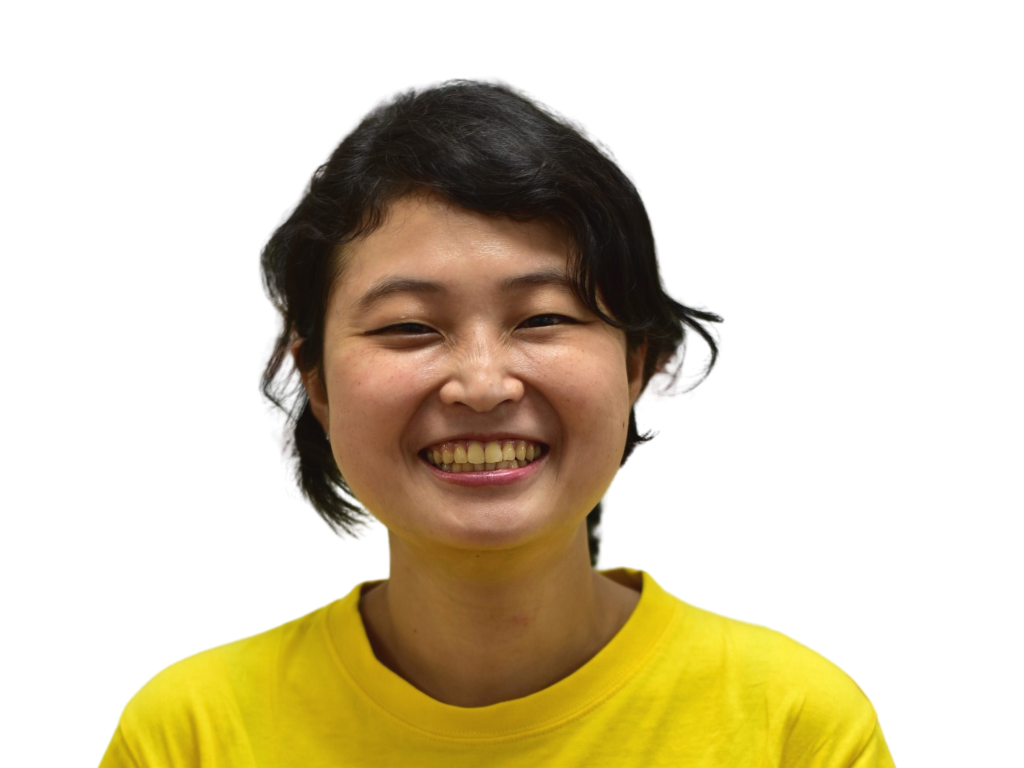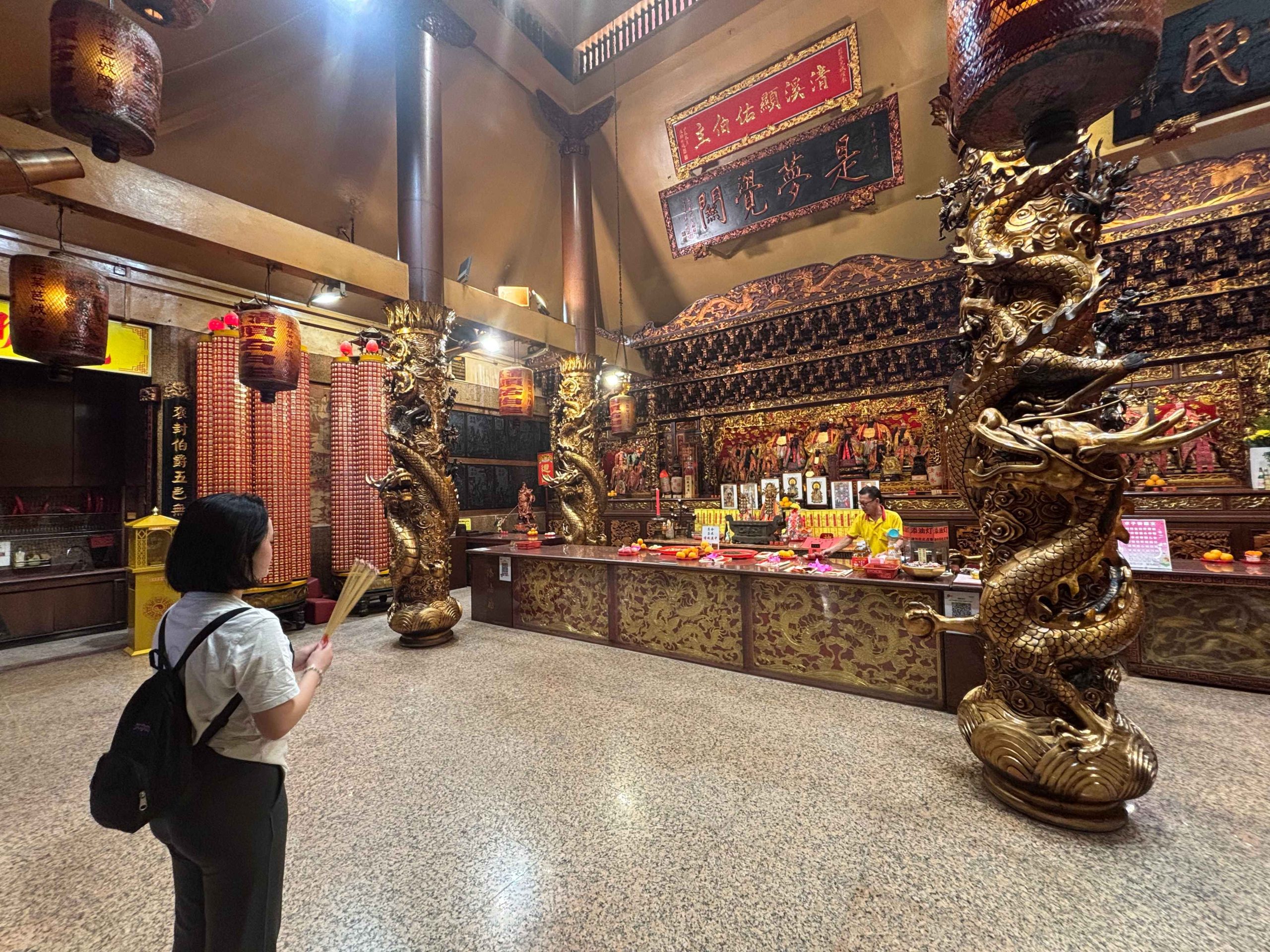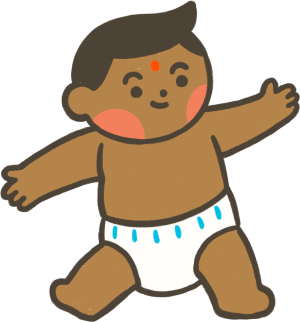


The session begins with an introduction to the core tenets of Taoism, including balance between yin and yang, living in harmony with the natural world, and honouring unseen forces that influence everyday life. These beliefs form the basis for many Taoist rites and rituals that mark major life stages, including the moment of birth.
Participants will then embark on a guided tour exploring key Taoist deities and their roles in birth and early life:
Yue Lao, the “Old Man under the Moon,” is the Taoist deity of matchmaking. Known for tying red threads between those destined to be together, he represents the first step in the journey of family—pairing individuals who will one day bring new life into the world.
Zhu Sheng Niang Niang (註生娘娘), the Goddess of Birth, is a central figure for those seeking blessings for fertility, safe childbirth, and the wellbeing of children. Her shrine remains an important stop for many families marking key milestones such as pregnancy and the man yue (baby’s full month celebration).
Hu Ye, or the Tiger God, is a guardian figure commonly invoked to protect children. Often found in Taoist temples across the region, Hu Ye is believed to ward off harm and ensure safety in the early, vulnerable stages of life.
This programme offers a close look at how Taoist traditions continue to shape the way communities mark the start of life. By exploring the beliefs, deities, and practices that support birth and early childhood, it connects meaningfully to My First Journeys—reflecting on how cultural rituals help us navigate and make sense of life’s earliest milestones.

Master Huang studied Taoism at the age of 17. He is good at Taoist music and ritual rites. From 1987 to 1993, he served as director of Baiyun Guan Taoist Temple in Beijing and deputy head of the Taoist Orchestra. From 1990 to 1992, he studied at China Taoist College. In 2000, he came to Singapore and became the tutor of Lorong Koo Chye Sheng Huang Temple Chanting Group and assistant head of Singapore Tao Orchestra. From 2001 to 2011, he led his team to participate in “Taoist Music Performance” for many times, recorded and published eight Taoist music CD albums and a DVD album titled “Worship of God”.
Dr Ji Ling is the Academic Director of Taoist College Singapore. After graduating from the National University of Singapore, she has spent the past 12 years deeply immersed in the study of local Chinese religious traditions. Her research focuses on Taoist deities such as the Nine Emperor Gods (九皇大帝) and the City Gods (城隍公), exploring their significance in shaping community identity and spiritual life. With a passion for heritage and education, Dr Ji Ling is dedicated to sharing the richness of Taoist beliefs and practices with a wider audience.
The Lorong Koo Chye Sheng Hong Temple traces its origins to the fifth statue of the City God from Anxi, China, also known as Qing Xi Xian You Bo Zhu, which arrived in Singapore in 1918. The temple has served as a spiritual hub for the local community for over a century. In 1981, the temple was officially registered as an association and renamed Lorong Koo Chye Sheng Hong Temple Association, with the formation of its first Management Committee to oversee the affairs of the Association.
In 1994, the Association was further formalised as a registered charity, which allowed it to expand its community services and better reflect its ongoing efforts in supporting the community. Over the years, the Association has continued to grow and establish various affiliated entities, all with the goal of serving the community and promoting the teachings and cultural practices of Taoism. The Sheng Hong Temple remains a vital centre for Taoist worship, cultural preservation, and community outreach.

Dr. Lin Chia-Tsun is a cultural historian and curator based in Singapore, with recognized expertise in Chinese diaspora studies, migration, and intangible cultural heritage. She also serves as an instructor at the Singapore University of Social Sciences.
Her academic work explores the globalization of diasporic Chinese voluntary associations, examining how these networks negotiate identity and tradition in contemporary contexts.
Beyond academia, Dr. Lin is deeply engaged in public cultural programming. She has led sessions on Taoist traditions, including the Nine Emperor Gods Festival, offering insights into the rituals and their significance for local communities.
Dr. Lin’s work bridges scholarship and community engagement, contributing significantly to the documentation, preservation, and interpretation of Singapore’s rich multicultural heritage.

Participants should be dressed respectfully in smart casual (i.e. collared shirt, long pants and covered shoes). Sleeveless attire, shorts/miniskirts or sandals are strictly not allowed. Participants will be denied entry if they dress inappropriately.
Parking is not available at the Temple. Limited parking is available at Lion Industrial Building.



My Prayers and Practices

My Prayers and Practices

My Prayers and Practices

My Prayers and Practices

My Prayers and Practices

My Prayers and Practices

